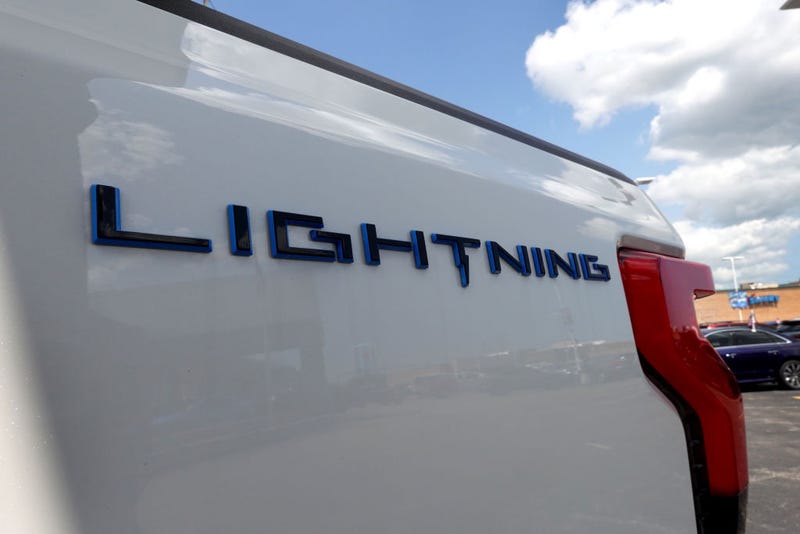
Ford’s F-150 Lightning may be the top-selling electric pickup truck in the U.S., but it isn’t yet popular enough for the company to produce it at current levels. In a Friday announcement, Ford said it would reduce production of the vehicles.
This move is expected to help the company “achieve the optimal balance of production, sales growth and profitability,” said a press release.
While Ford has seen growth in global electric vehicle (EV) sales, that growth was less than anticipated. It was the second best-selling electric vehicle brand last year, and sales of the F-150 Lightning alone were up 55%, with further growth expected this year.
Production of the EV pickup might be decreasing, but Ford said it has the ability to scale production of gas-powered and hybrid F-150 trucks based on customer demand.
“We are taking advantage of our manufacturing flexibility to offer customers choices while balancing our growth and profitability. Customers love the F-150 Lightning, America’s best-selling EV pickup,” said Ford President and CEO Jim Farley. “We see a bright future for electric vehicles for specific consumers, especially with our upcoming digitally advanced EVs and access to Tesla's charging network beginning this quarter.”
Limited access to charging stations has been one reason why consumers have continued to purchase gas-powered vehicles rather than electric models. A recent poll found that only 29% of American adults said they were likely to pick an EV as their next vehicle. CBS News also reported this week that a cold snap in the Midwest caused batteries in electric vehicles to drain faster, leaving motorists in need of jump starts.
“Electric vehicles – the charge does run out a little faster during the winter months due to keeping the car on; keeping the car warm,” said River North Hand Car Wash manager Bill DeMaio, per the outlet. “It’s actually reduces the temperature, or the battery life, about 20%.”
President Joe Biden has announced a goal of having 50% of all new vehicle sales be electric by 2030, and automobile manufacturers are under pressure to produce new electric vehicles. Issues associated with this push contributed to the United Auto Worker strike last year.
According to Ford, approximately 1,400 employees will be impacted when the Rouge Electric Vehicle Center transitions to one shift on April 1. Of those employees, around half will transfer to Michigan Assembly Plant and the others will be placed in roles at the Rouge Complex or other facilities in Southeast Michigan. Some may also take advantage of the Special Retirement Incentive Program agreed to in the 2023 Ford-UAW contract.
“A few dozen employees could be impacted at component plants supporting F-150 Lightning production, depending on the number of employees who apply for the Special Retirement Incentive Program,” said the company. “Ford would provide placements for impacted employees within Southeast Michigan.”
Ford also announced it plans to create 900 new jobs to staff the third crew at Michigan Assembly Plant in Wayne, Mich. These new employees would help meet demand for the popular Bronco and Bronco Raptor as well as the new Ranger and Ranger Raptor.
